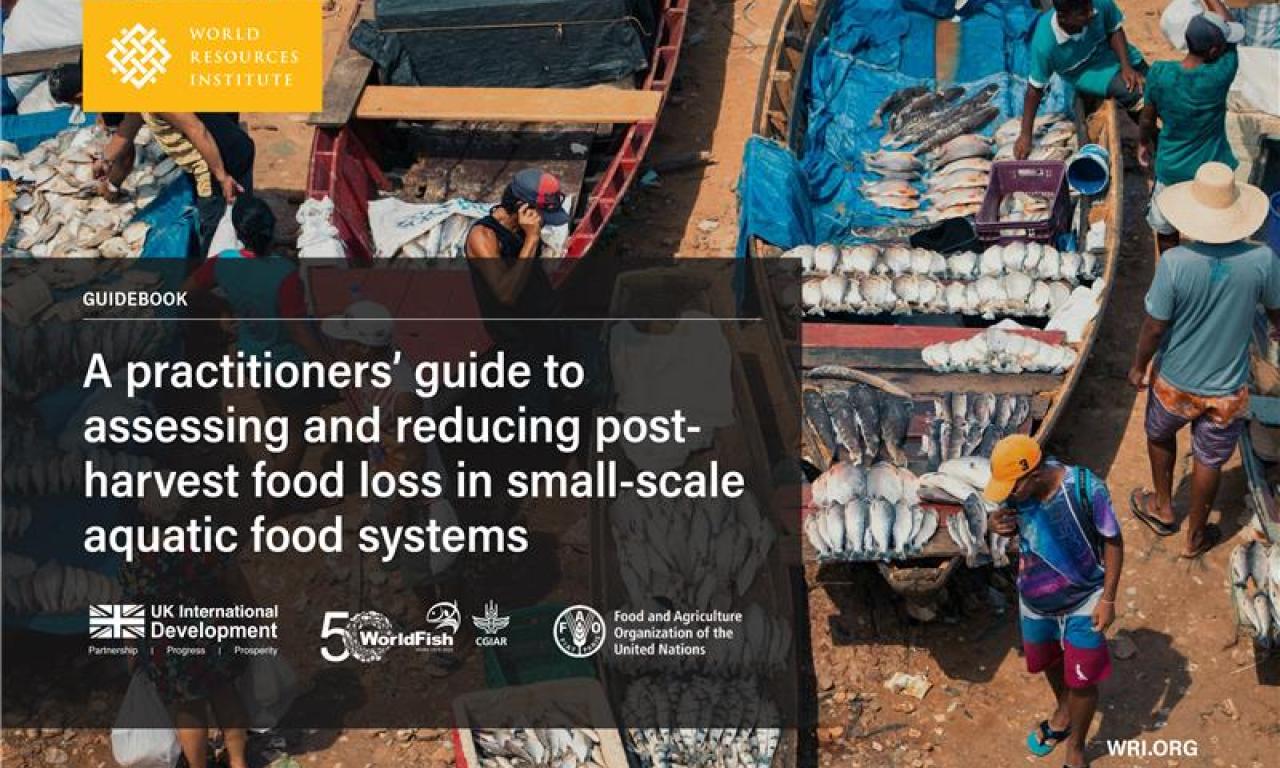
WorldFish and partners have launched the first comprehensive practitioner-focused framework built specifically for small-scale fisheries and aquaculture.
Turning research into action, the new guidebook A Practitioner’s Guide to Assessing and Reducing Post-Harvest Food Loss in Small-Scale Aquatic Food Systems provides a practical and adaptable resource to help researchers, fishery agencies, civil society, and value-chain actors understand where and why post-harvest losses occur and develop locally led strategies to reduce them.
Globally, between 15 and 35 percent of aquatic food is lost or wasted each year. These losses often occur after harvest because of poor handling, weak infrastructure, limited cold storage, narrow market access and lack of technical knowledge. The value of discarded fish alone is estimated at USD 22 billion a year. For small-scale fishers and farmers, who support around 500 million people and produce nearly 40 percent of global aquatic foods, such losses directly reduce income, limit food availability and weaken community resilience.
“Few are aware of the scale of post-harvest loss or have the tools to tackle it. This guidebook changes that by showing how to turn research and community insight into real solutions on the ground,” said Aditya Parmar, co-author of the guidebook and Scientist at WorldFish.
The guidebook outlines a structured six-stage approach, Prepare, Train, Explore, Quantify, Validate and Act, that enables practitioners to assess the key factors affecting aquatic food loss and to develop effective, locally relevant reduction strategies. Unlike many existing technical manuals, this approach combines quantitative assessment with social research and community engagement from the outset, making it uniquely integrated and practical for field application.
The guidebook was developed under the Asia–Africa BlueTech Superhighway (AABS) initiative led by WorldFish, which aims to accelerate innovation and knowledge sharing across aquatic food systems in Asia and Africa. Following a global consultation with researchers, practitioners, and policymakers, it was drafted by WRI in collaboration with FAO.
Read the full guidebook here and explore tools to assess and reduce post-harvest losses.
About the Asia–Africa BlueTech Superhighway initiative
Delivering a triple win for nature, people and climate
Asia–Africa BlueTech Superhighway (AABS) is a seven-year project, from 2023 to 2030, implemented by WorldFish with a host of partners to sustainably transform aquatic food systems in Asia and Africa. Funded by UK International Development under the Blue Planet Fund, AABS aims to leverage South–South collaboration to deliver a triple win for nature, people and climate.
For more information on AABS click here.
